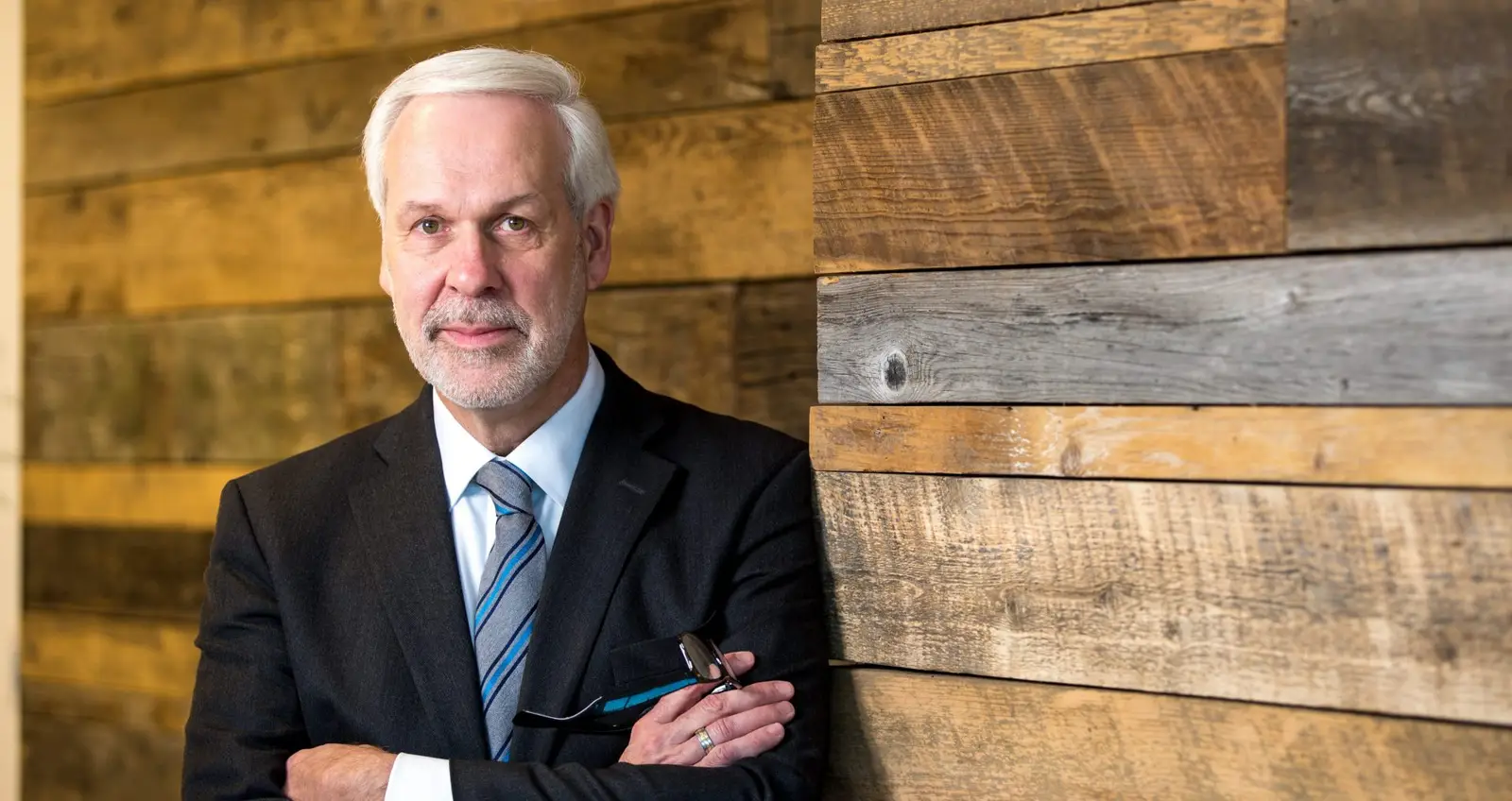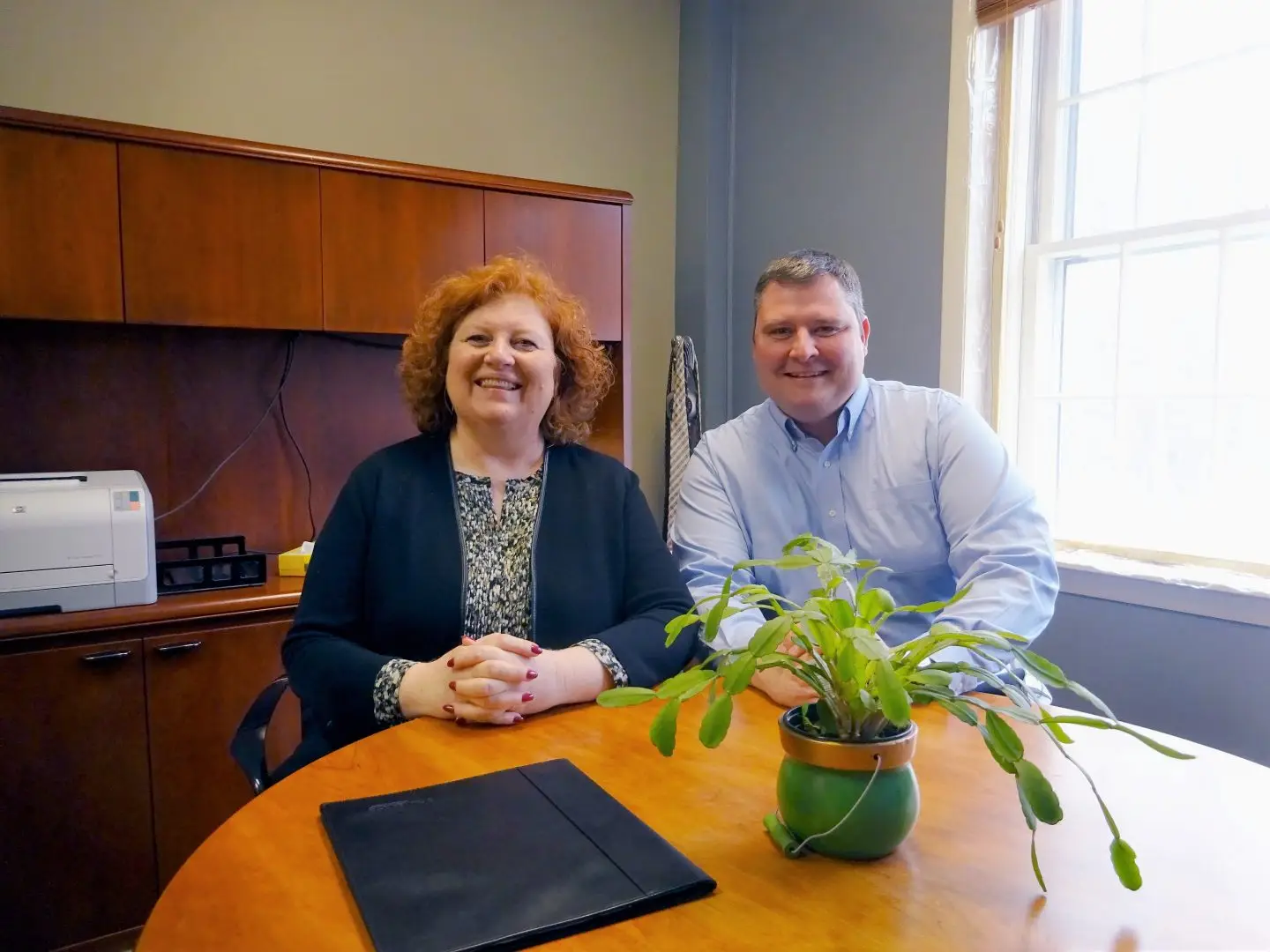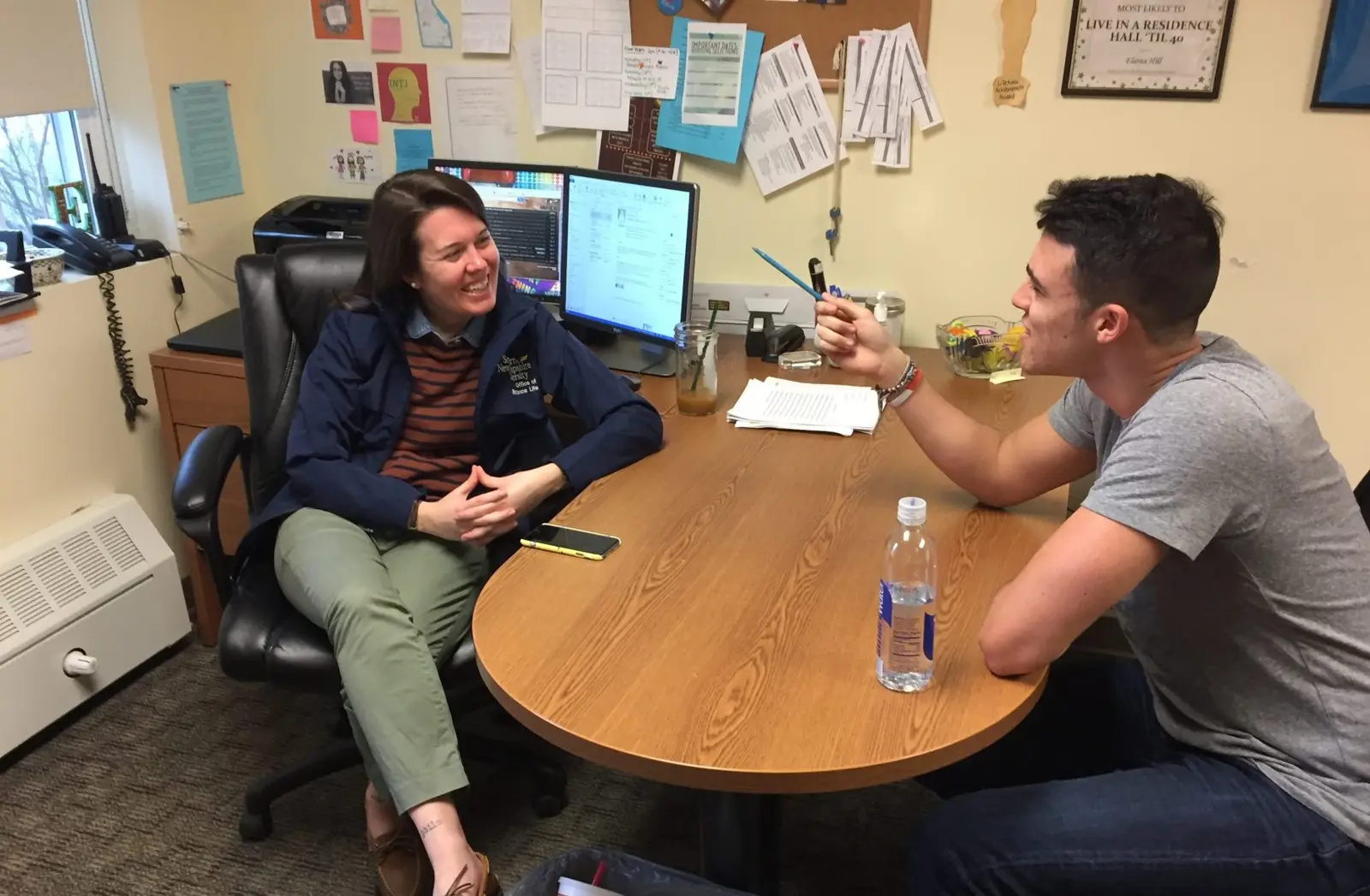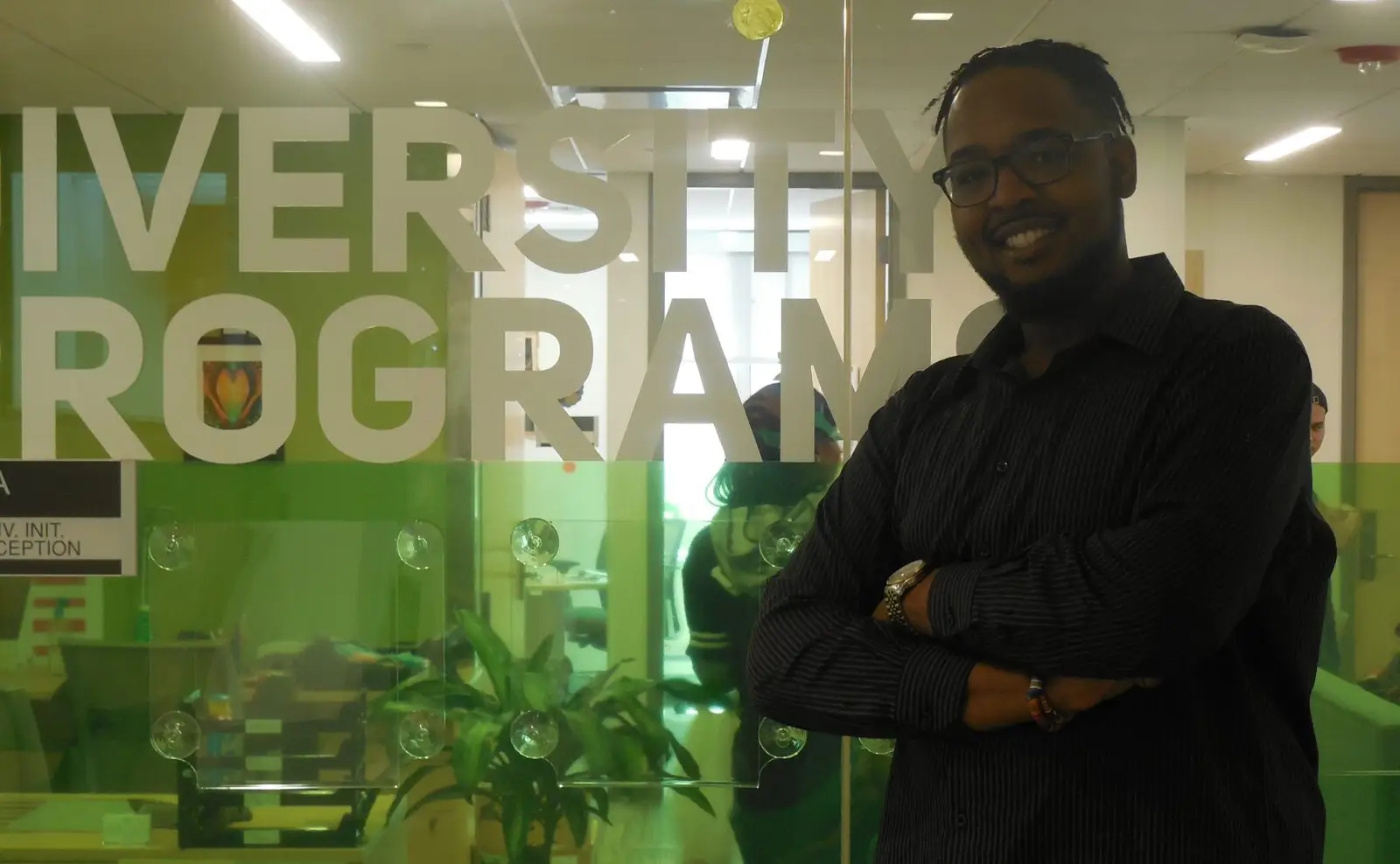A university president is a bit like a local celebrity; everyone on campus knows who they are. SNHU’s President Paul LeBlanc, however, takes on a new role: being the face of a university with a student body stretching the whole country, and then some. With this comes different responsibilities, ones that no person in his position has had to face before the Internet age. LeBlanc took some time to be candid with The Penmen Press about how he handles those pressures, and his vision for university education as a whole.
Nick Klotz: What is a day in the life of President Paul Leblanc like?
President LeBlanc: No two days are exactly like and the job is endlessly varied. It’s what I like most about it really. A day might include a very specific personnel problem that needs working out, interviews with the media, a ceremonial welcome to visitors at a campus event, a video interview for a marketing production, calls with Trustees, stopping in to check on someone who has an ailing family member, and often some kind of work dinner. In between all, there are emails to be answered, calls to be returned, and the unexpected popping up to wreak havoc on a well-planned day.
Of course, much of my time is spent externally, representing the University. I sit on national boards, speak at conferences, and manage key partnerships.
But a good day always includes three things:
- Touching a student life (or students’ lives) in a meaningful way;
- Moving forward the strategic interest of the University;
- Learning something new.
If I end day having done all three, it’s been a good day. If I can squeeze in a little racquetball, it’s even better!
Klotz: It is my understanding that your family came to the U.S. as immigrants when you were young. How has that shaped your path leading you to become a university president, and does it shape your vision of university education?
LeBlanc: We immigrated from a hardscrabble farming village in Canada when I was three. My parents had 8th grade educations and worked incredibly hard. Last of five kids, I was the only one to go to college and it changed everything. Education made available to me the American dream, as corny as that sounds. It changed the trajectory of my life and the life of my kids. So in a very visceral way, my life story informs my commitment to getting higher education into the hands of more people. That American Dream story is further out of reach for too many Americans and is leading to inequality and less social mobility, both at the heart of the American mythos. So we are always trying to find new ways to make high quality education more accessible because it is so critical to people’s lives, no more than ever, and to the health of our country.
Klotz: Between integrating students and Programmings from Daniel Webster College and several construction projects, SNHU is having a big year. What is SNHU’s plan going forward in the next few years?
LeBlanc: We are in a three year phase of massive reinvestment in our foundational infrastructure. So that means revitalizing the main campus, replacing tired old wooden dorms, better supporting our athletic program, supporting new STEM programs. We are also rebuilding our IT infrastructure to make it state of the art and to support our now massive scale. Programmatically, we are obviously making a big move towards high demand STEM programs and we want to look hard at health care related majors as well. Online continues to grow, if more modestly now, and continues to improve in quality and efficacy.
The key to perspective is mission – staying focused on why we do what we do — and planning. The new refugee initiative, for example, is very much part of mission to bring transformative education to more people (and it is incredibly transformative for refugees – maybe even lifesaving in many instances). Also, it requires a great team and constant conversation with our Board. I think of them as our partners, helping us keep perspective even as we nurture an ambitious vision for SNHU.
Klotz: What does the student of 2017 need that they didn’t need 10 years ago?
LeBlanc: The traditional higher education model is a legacy of the industrial age. Do four years of education, get a job with one company, work there all of your life, and move up through the hierarchy. That’s not our world any longer. Technology and globalization has impacted every facet of our society. AI and automation are having a profound impact on the future of work, and jobs are evolving at a rapid pace. Graduates will work many jobs, pursue various career paths, and go and in out of the education system all their lives to remain current and in demand. Many will work in the gig or platform economy which is emerging and will “own” their own labor.
So today’s student will need the following, in my view:
- A lot of curiosity and a willingness to explore
- Technological facility and willingness to stay current
- More self-direction (no parent company telling you what to do next)
- Entrepreneurial drive.
As technology takes over more and more technical aspects of work, I believe that the distinctly human will be more valued: creativity, empathy, teamwork, synthesis, and critical thinking. The Humanities will be rediscovered (I hope) as a source of those attributes and, in turn, will be more thoughtful about how they ensure that students develop those skills and characteristics.
We recently interviewed the heads of engineering at a local company and they essentially said, “We can find good engineers in terms of technical skills. We struggle to find engineers that can communicate well across varied audiences, lead teams, work across cultural boundaries. The human stuff is the hard part.”
Klotz: Recently SNHU has been in the news for awarding more than 100 Rwandan refugees SNHU diplomas. How did this partnership come about and how does it fit into SNHU’s plans for the future?
LeBlanc: We’ve been doing that work for a couple of years now and it had come to the attention of donors with an interest in education more refugees. The refugee crisis is profound: we now have more than 65 million refugees worldwide and less than 1% have access to higher education. We were asked what it would take to expand our refugee work to help address the problem, knowing that we were having excellent results in Rwanda and SNHU knows how to scale.
To make this work within the refugee context, we will have to be even more innovative in lowering cost while preserving quality, and I hope that what we learn there can then be brought back into the US work, lowering the cost of education to our students.
Klotz: SNHU is known nationwide, if not worldwide for being one of America’s most cutting edge universities for it’s successful online degree program. Is it difficult to manage both the needs of online students and on campus students?
LeBlanc: Not at all. University College is set up to support the traditional campus students and everything it does is for their success. Similarly, the College of Online and Continuing Education is set up to support its students, typically 30-year olds with jobs and families, and everything it does it does for their success. It is because they serve very different populations with very different needs that we keep them distinct. As a non-profit, we pour surpluses back into our academic and business units and each has benefited enormously from the presence of the other.
Klotz: Many who see the SNHU commercials are not aware that SNHU has a university campus and student body. How do you address claims that online college is “not real college?”
LeBlanc: First, we just don’t hear that as much anymore. There are UC focused commercials and many COCE commercials feature or include the campus in some way. Both marketing teams work much more closely together now than they did before.
Also, we find lots of indirect ways to build the credibility of the whole institution. These range from President Obama’s ringing praise for SNHU in a key higher education speech (at another university, much to their chagrin) to our partnerships with Major League Soccer and military serving organizations like the USO to SNHU’s inclusion in the most respected higher education organizations, often through my role (these include The American Council on Education, the Academies of Science, and the Association of Governing Boards).
Finally, we have gotten so much better at online education as an industry. When people take a look at what goes into the development of an online program, the way we deliver it and support students, and the quality control measures we take, they are blown away. The most famous “brands” in higher education now offer online programs, including Stanford, Harvard, MIT, Brown, and more. That quality debate is now out of date and usually brought up by those who know little of what they discuss.
Klotz: How do you manage the pressure of being in the spotlight, being the face of SNHU?
LeBlanc: A sense of humor goes a long way. Also, keeping in mind that I have this job to serve students and see to the mission of SNHU – staying focused on why we do this work. I think I have a responsibility to uphold the role of the Universities and universities generally, which includes making room for all voices (even the conservative ones with which I might disagree), demanding evidence-based discourse, acting as a free marketplace for ideas, and existing as a force of progress and discovery that improves the lives of people and society.
I take that role very seriously, but I try not to take myself too seriously.
Klotz: How many ties do you own?
LeBlanc: Hmmm…..Obama has done for ties what Kennedy did for men’s hats, which is to make them less fashionable. But I Iike ties and probably have 30 or so. But they get of date – -too wide, too narrow, too weird – so the regular rotation is smaller and I do wear them more often.
In a truly perfect world, I’d only wear flip flops, shorts, and a hoodie. That’s my vacation attire.
Klotz: What advice would you give to yourself as a college freshman?
LeBlanc: I wish I had forced myself out of my intellectual comfort zone more and tackled subjects that felt genuinely hard to me, like math and finance and physics. We tend to think about being “good” at some subjects and “bad” at others, but we know now that a growth mindset and grit make that old notion obsolete.
I always had a greater passion for travel than a budget or experience, but I wish I had managed to travel more. It is life changing and opens one’s mind to possibility, difference, and mystery. We feel it so important that my wife Pat and I have set up a scholarship fund to help poor SNHU students study abroad. The experience should not be reserved for the more privileged.
I met my wife in college and we really didn’t like each other (I was editor of my college newspaper and often criticized her; she was head of student government and was always threatening to cut our funds. But there is a fine line between love and hate and I only wish I had crossed it earlier. For all that college gave me, she remains the best part of it.




